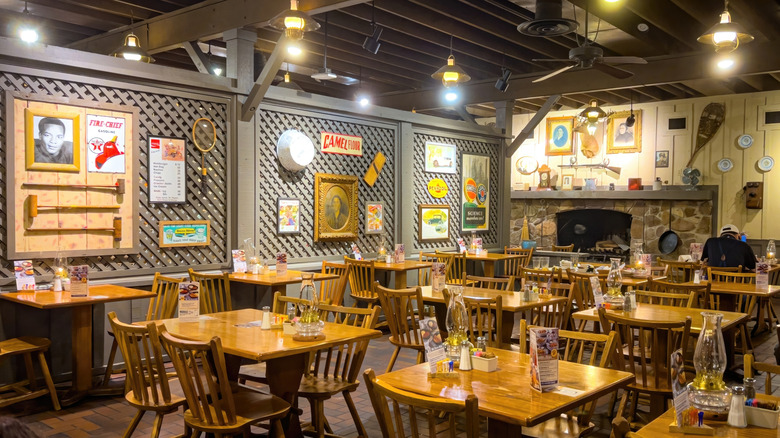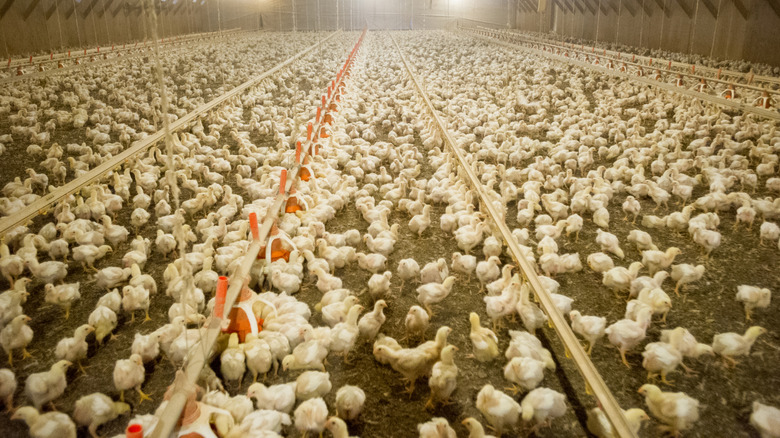Cracker Barrel Shades A Certain Chain Restaurant Over New Egg Upcharge
Cracker Barrel, which touts itself as a warm and welcoming haven of Southern charm, just threw another Southern restaurant chain under the bus for hiked egg prices. "A surcharge on eggs? Well, there's nothing hospitable about that," a spokesperson for the restaurant said.
The target of Cracker Barrel's passive-aggressive slam is the diner-style chain Waffle House, which recently instituted a $0.50 surcharge per egg across their menu. The increased price of eggs, which has dinged restaurant owners and grocery shoppers alike, is the result of an ongoing bird flu outbreak. The outbreak has led not only to price increases, but even to highway egg robbery.
While Waffle House resorted to an uptick in cost, Cracker Barrel is doubling down on its commitment to hospitality. From February 6 to 12, rewards members will receive double the points for every egg dish. "At Cracker Barrel, country hospitality is as important to us as a hearty breakfast — and that means not charging extra for eggs," the chain's spokesperson said.
Just like Cracker Barrel's bonus rewards campaign is temporary, Waffle House intends to keep its upcharge short-term. But as the current outbreaks of bird flu have put flocks of egg-laying hens on a steep decline, egg prices have responded with an exponential rise, and will likely stay high for a while.
Bird flu has run rampant for several years now
Since 2022, waves of bird flu have shattered farms and egg supplies nationwide. Egg prices have steadily risen as farmers attempted to cope with the virus, but a bird flu flare-up toward the end of 2024 brought heightened troubles to the table. And we're not yet in the resurgence's wake — we're still deep in the wave, and chicken and egg supply will continue to be affected for some time.
Over 15 million laying hens died from avian flu in just November and December of last year. Entering 2025, the number of infections continues to rise, which explains why grocery stores are still experiencing egg shortages. The diversity of environments that house chickens around the nation has compounded the virus' spread. Chickens in warehouse farms and backyard coops alike have fallen victim to the virus. Though the U.S. government has invested in avian flu vaccination programs to protect the poultry, compensating for the sheer number of egg-laying hens lost to the virus will take a considerable amount of time.

